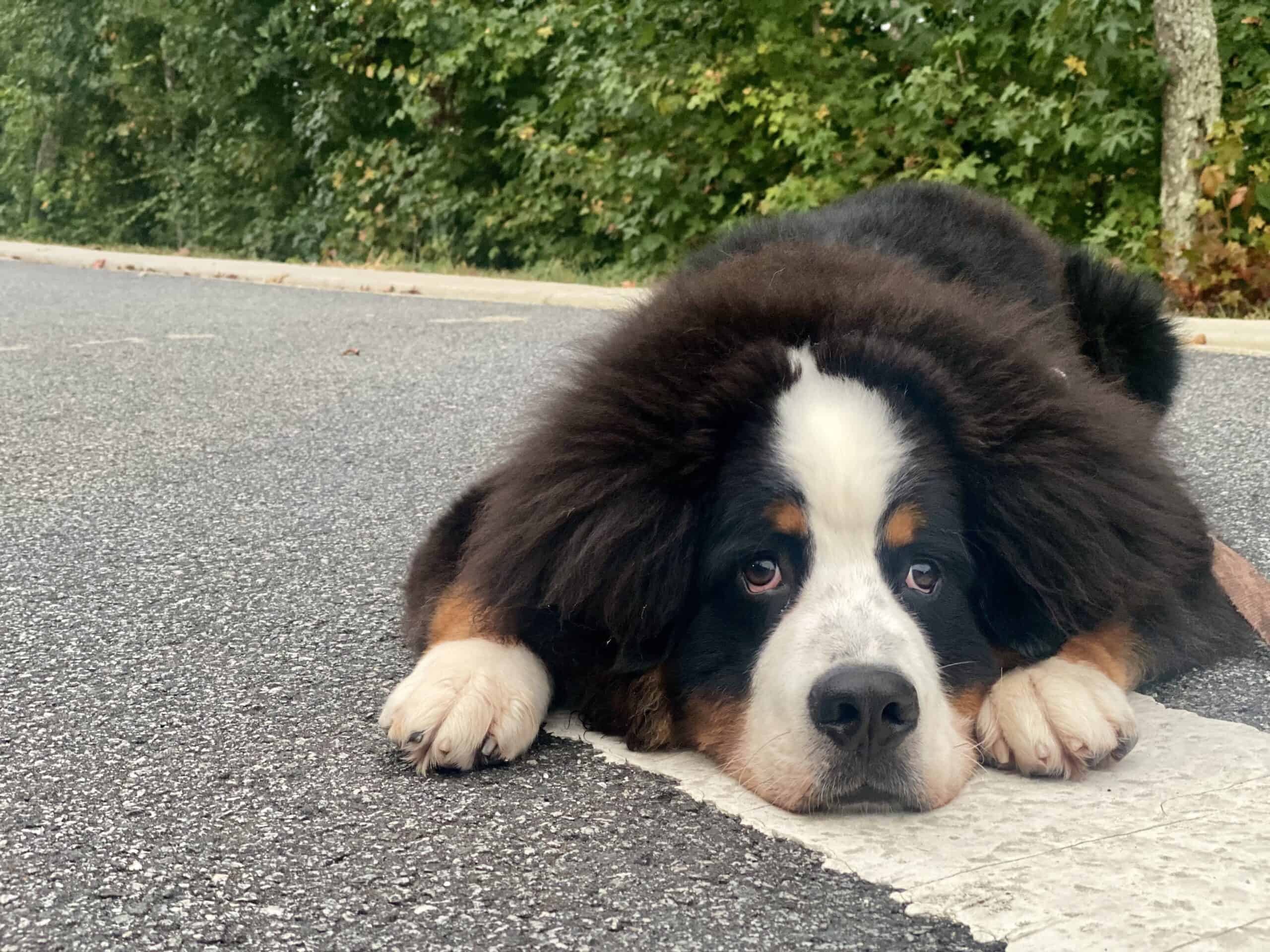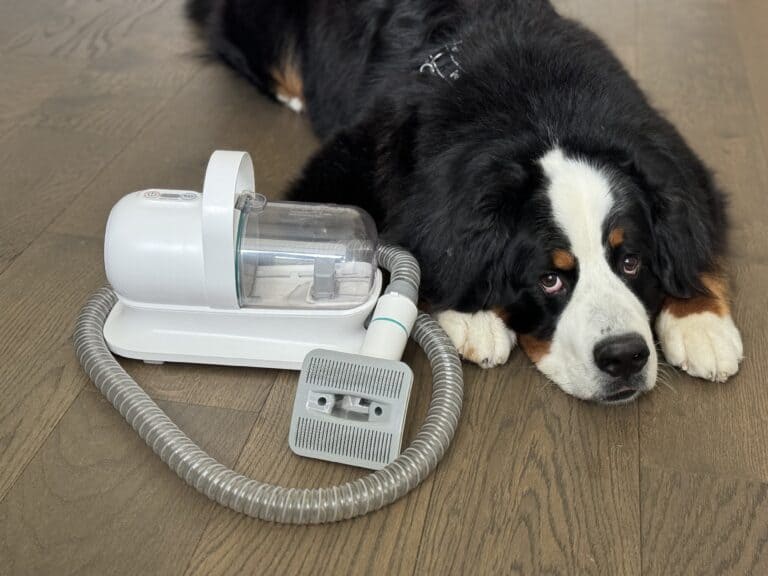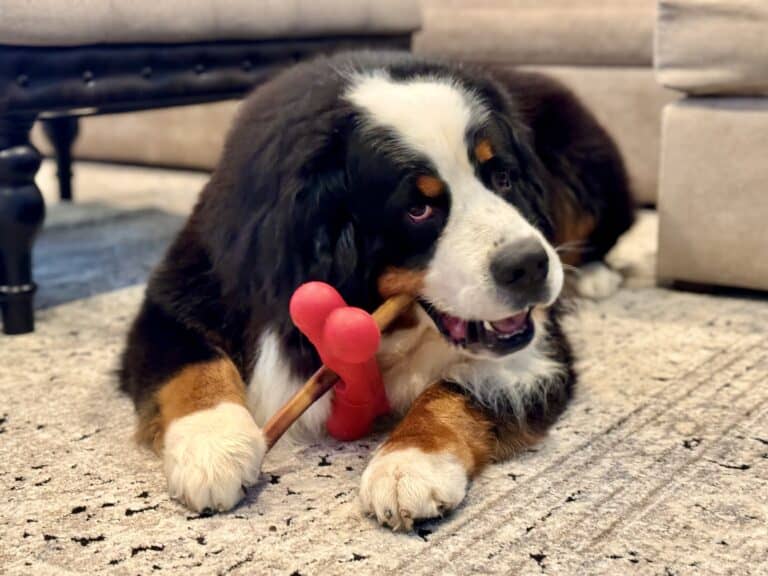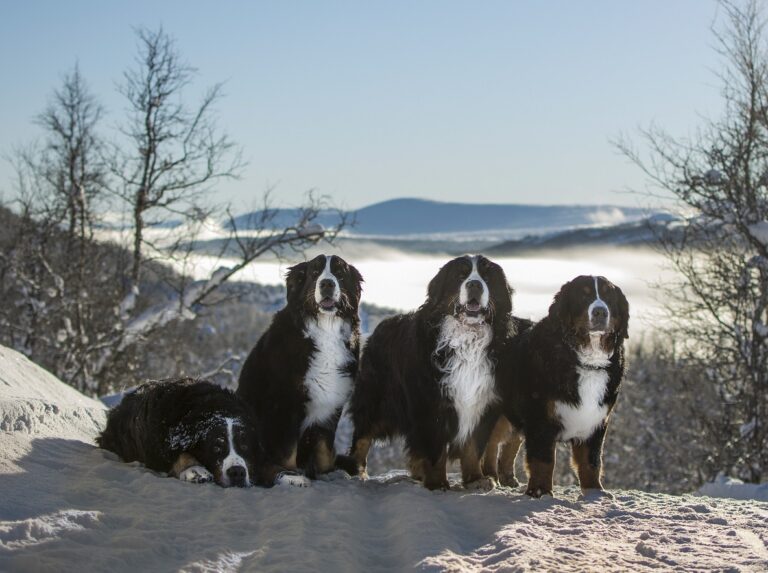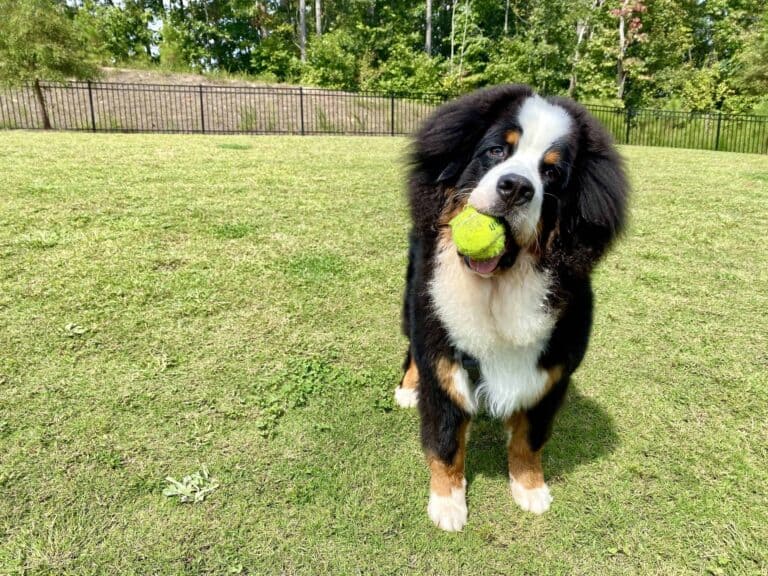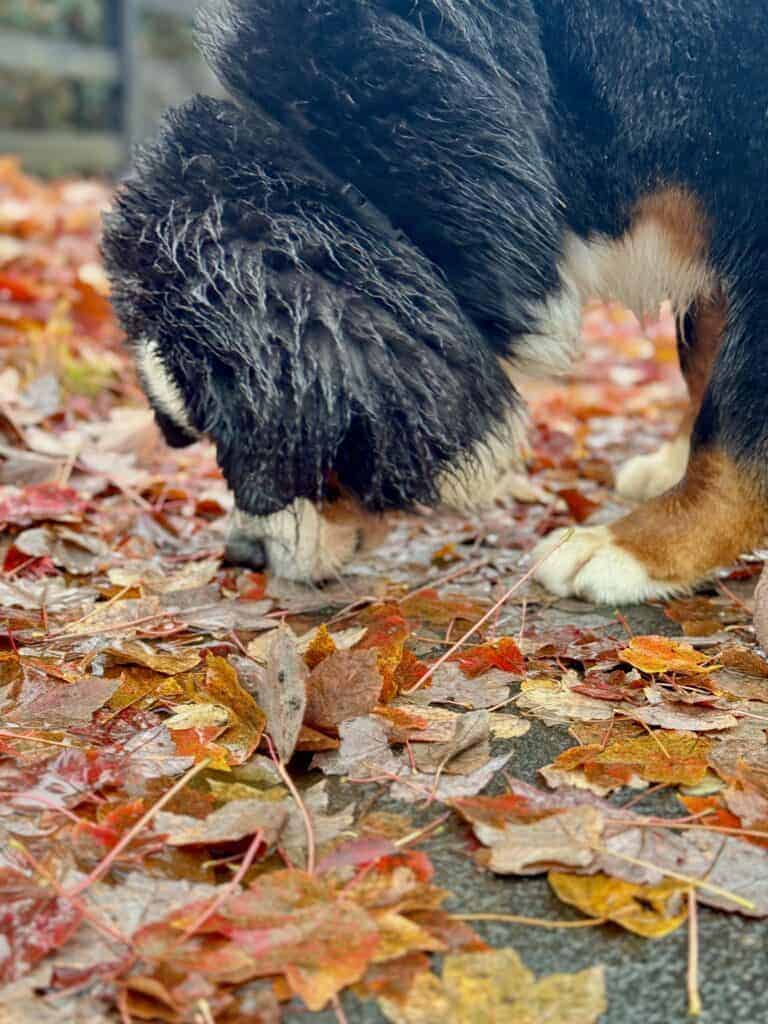How Much Do Bernese Mountain Dogs Cost?
Are you curious about how much Bernese Mountain Dogs cost? First and foremost, the initial cost of a puppy is only the beginning regarding the financial investment required to raise and care for these fantastic but inherited disease-prone dogs.
In this guide, we will discuss the cost to purchase a puppy from a breeder, the cost to adopt from a rescue, the costs associated with proper and ethical breeding, the ongoing costs of owning a Bernese, and the unfortunate reality of potential healthcare costs associated with common genetic disorders in Bernese.
Cost to Purchase a Puppy from a Breeder

The price to purchase a Bernese Mountain Dog puppy will depend on many factors. It can range from $1,200 to more than $10,000 for show-quality championship bloodlines.
However, the initial price of a puppy should NEVER be used to indicate the quality or health of the dog. Many puppies for sale online and in pet stores come from inhumane and unethical puppy mills and are plagued with genetic health conditions due to improper breeding and lack of health testing, yet are sold at prices similar to ethical preservation breeders.
Always perform proper due diligence when evaluating a breeder by reviewing our comprehensive guide, How to Find Bernese Mountain Dog Breeders? So much more than price goes into determining a good breeder from a bad one.
Cost to Adopt a Bernese from a Rescue
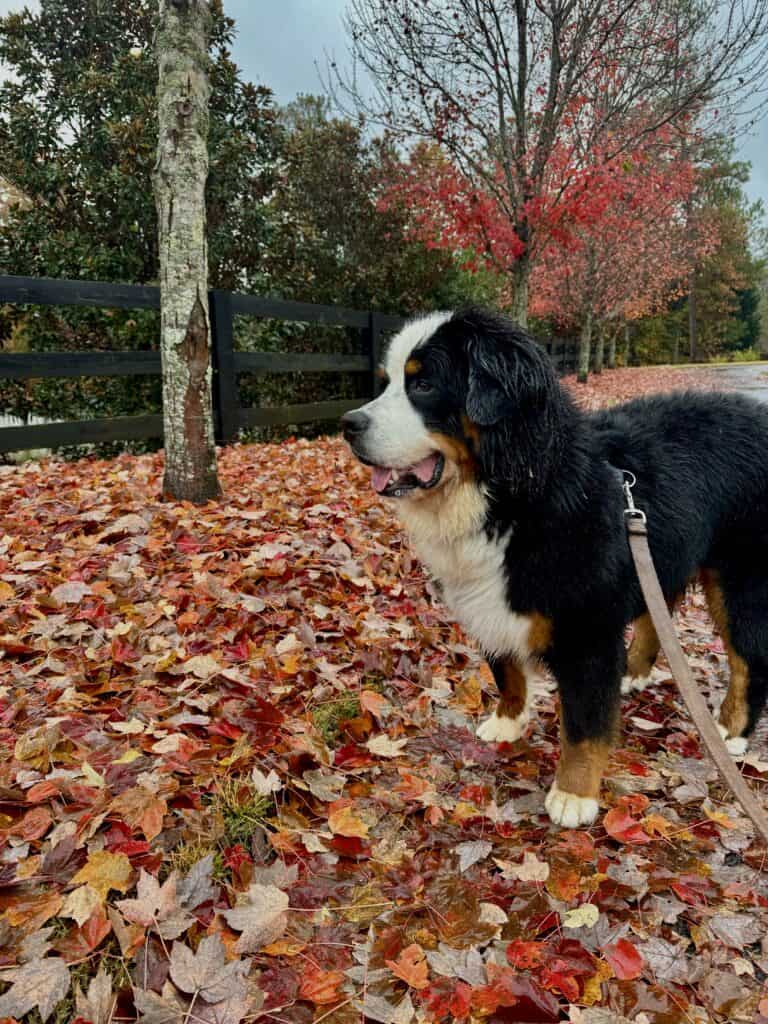
Adopting a Bernese from a breed rescue can be much more affordable as adoption fees range from $500 – $1,200, depending on the dog’s age and health needs. The younger and healthier the dog, the higher the adoption fee. Conversely, the older and more specialized the health needs, the lower the adoption fee.
However, some dogs that come into rescue were poorly bred, are from puppy mills, or come from parents not tested for common diseases in the breed. Therefore, depending on their origin, ongoing medical costs for adopted Berners can be substantial.
Check out Bernese Mountain Dog Rescue: Everything You Need to Know for more information about rescue and adoption, including links to Bernese rescue organizations.
Costs Associated with Ethical Breeding
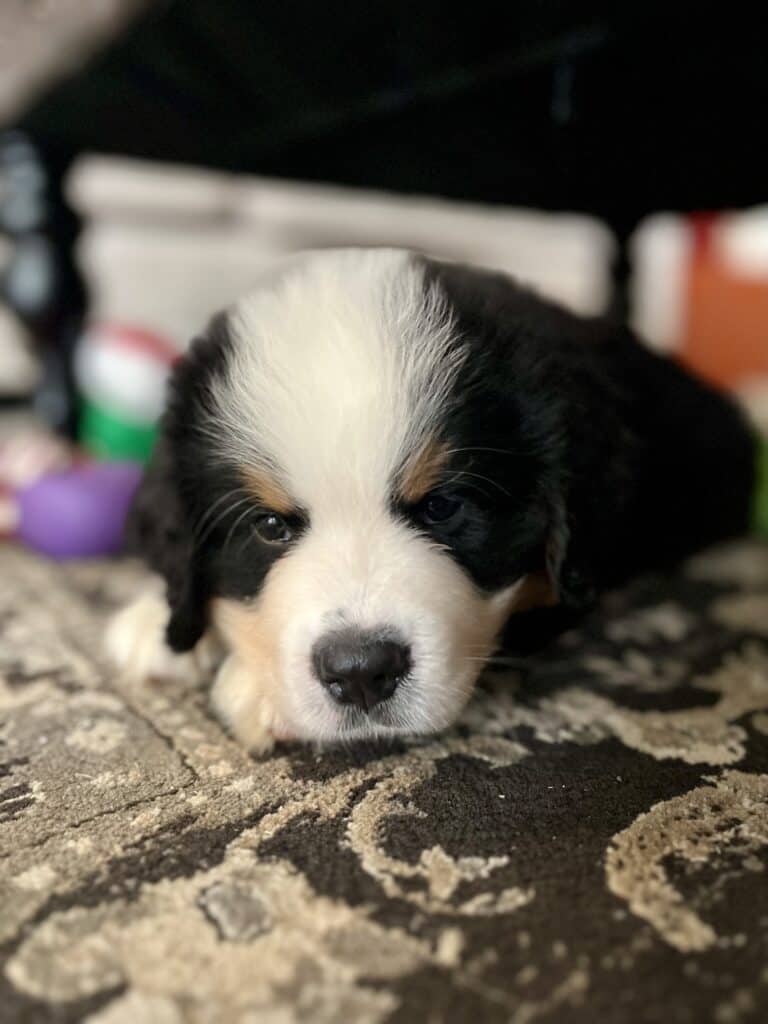
Why do Bernese Mountain Dog puppies cost so much? Conscientious breeders incur significant expenses to ensure their litters’ highest quality and best health.
Here is a list of some of the costs associated with ethical breeding:
• Stud Fees – securing high-quality males for breeding requires paying stud fees to the males’ owners.
• Health Tests and Certificates – the list of recommended health tests and certificates for Bernese is long because they are prone to so many inheritable disorders and diseases. The costs of these tests are substantial. Dogs who have not been health tested should never be used for breeding.
• Pregnancy-Related Veterinary Bills – breeding, pregnancy, and delivery require ongoing veterinary visits, and complications mean possible emergency surgery. Cesarean sections are not uncommon in Bernese Mountain Dogs.
• Puppy-Related Veterinary Bills – a vet must evaluate new pups and provide initial immunizations, deworming, removal of dew claws, etc.
• Food and Supplies – large breed puppies and pregnant females require special diets and supplies such as whelping boxes, potty pads, enrichment toys, etc.
• Conformation/Event Costs – preservation breeders will invest in showing their dogs at dog shows and compete in events such as obedience and drafting. This typically involves travel, which adds significant cost to participation.
Read our Complete Guide – How to Find Bernese Mountain Dog Breeders – for a comprehensive look at what constitutes an ethical and reputable dog breeder.
Ongoing Costs to Own a Bernese Mountain Dog
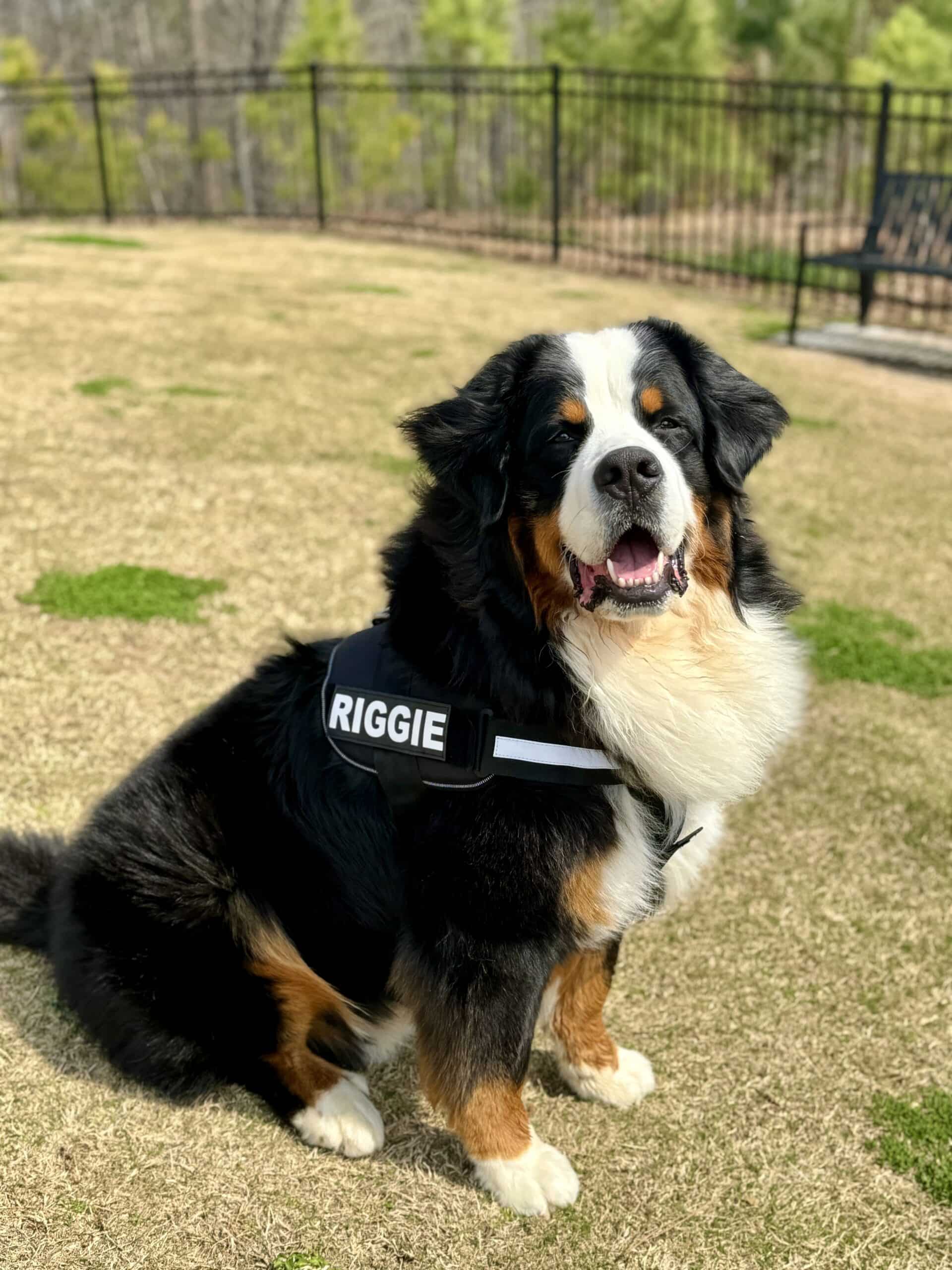
If the initial price to purchase a Berner gives you sticker shock, you should reconsider owning this breed. The ongoing costs of owning a Bernese are MUCH higher than the initial price of a puppy or the cost of adopting an adult.
Here are the ongoing and one-time costs you can expect to incur:
• Food and Treats – high-quality dog food for a fast-growing large breed puppy and healthy training treats. Bernese do not reach full adult size until 2 years old. (>$1,000 per year)
• Supplies – collars, harnesses, leashes, identification tags, dog beds, car safety restraints, crates, etc. Don’t forget puppies will need to size up as they grow continually. (>$250 during the first year)
• Toys – safe chew toys, food puzzles, tug toys, balls, etc. If you have a very aggressive chewer, expect to spend more to satisfy their chewing needs. (>$250 during the first year, less as they mature)
• Routine Veterinary Care – immunizations, deworming, heartworm preventative, flea and tick preventatives, and regular check-ups. (>$500 per year)
• Spay/Neuter, Microchipping, and Gastropexy Surgery – spay/neuter and microchipping are absolute necessities. Gastropexy is an optional procedure that reduces the risk of gastric dilation and volvulus, a life-threatening condition that is common in Bernese Mountain Dogs. ($250 – >$6,000)
• Unexpected Veterinary Care – blood work, x-rays, biopsies, allergies, ear infections, foreign object ingestion, emergency surgery, orthopedic surgery, cancer, etc. ($200 – >$10,000+)
• Pet Insurance – many owners opt for pet insurance to help deter unexpected medical expenses. ($75 – $200 per month, depending on coverage and age)
• Grooming – some owners opt for DIY grooming, while others use a professional groomer every 1-3 months. ($50 – $200+ per groom + tip)
• Training – puppy school, basic obedience, and ongoing training for the “teenage” years. ($100-$200 per 6-week group training, $100-$300 per hour for private training, >$1,000 for board and train)
• Pet Sitting – a daily dog walker or doggy daycare while you are at work and a pet sitter or boarding while traveling are necessities for this breed, which prefers to be around people at all times. ($20-$30 per daily walk or daycare, $50 – $100 per night for boarding or an in-home pet sitter)
• Home-related Expenses – fences, new vacuum cleaner, pet gates, replacements for anything chewed up, etc. (variable)
Depending on your lifestyle, the cost of living in your area, and how prepared you already are for a dog, the total annual expenses for a Bernese Mountain Dog during the first 2 years can easily run $10,000 and up. Costs tend to peak again in the later years as health conditions surface.
Potential Healthcare Costs Associated with Common Genetic Diseases in Bernese Mountain Dogs

Unfortunately, the most significant expenses associated with Bernese Mountain Dogs are related to their predisposition to certain health disorders and diseases.
Cancer is the leading cause of death in Berners and occurs at a much higher rate than in other breeds, leading to a shortened average lifespan. Other common inherited conditions include allergies, hip and elbow dysplasia, eye disorders, gastric dilatation-volvulus, autoimmune disorders, degenerative myelopathy, Von Willebrand’s Disease, thyroid disorders, orthopedic disorders, heart disorders, and histiocytic sarcoma. DNA testing is available for some of these genetic disorders.
The costs to diagnose, treat, and rehabilitate these health conditions are substantial and can run from $500 on the low end for something like allergies to $10,000 and up for orthopedic disorders requiring multiple surgeries, medications, supplements, and physical therapy. It is also not uncommon for a Berner to suffer from more than one health condition, multiplying these costs.
Any potential Bernese owner needs to understand these expenses and be willing and able to incur them or obtain pet insurance. Too many dogs are surrendered to shelters and rescues because owners underestimate the lifetime costs of owning a dog and only consider the initial cost of purchasing a puppy.

Hopefully, you can now see that “How Much Do Bernese Mountain Dogs Cost?” is a complex question. Many factors are involved beyond the cost of a puppy. We hope this provided a clear understanding of what will be required financially to maintain a Berner throughout its life. The price of a puppy is just the starting point and should be only a tiny part of the decision to welcome one of these magnificent dogs into your life.
For a deeper dive into other aspects of the breed to be aware of beyond costs, be sure to read 8 Reasons a Bernese Mountain Dog May Not Be Right For You.
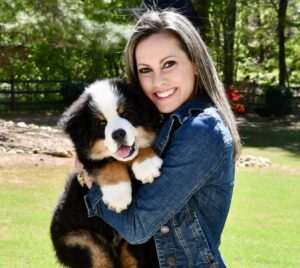
Katie Vincent is a dog lover, world traveler, and passionate creative who left a successful career in medical device sales to become a digital marketer, content creator, and writer. She has owned large-breed dogs for over 30 years, traveled to 42 countries, and taken 57 online courses. She now writes about all three at Riggie the Berner, Travel Planner Katie, and Creator Katie.


